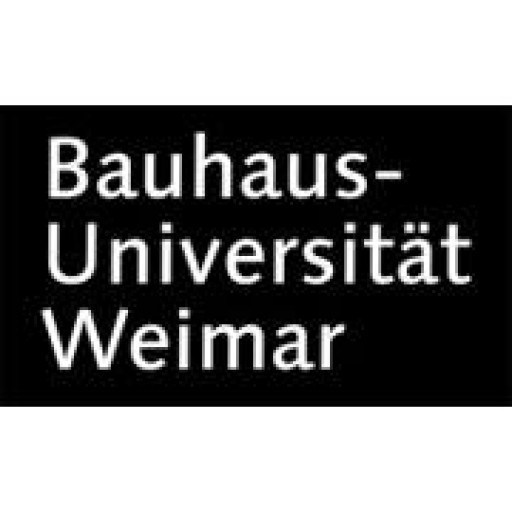Photos of university / #tu_berlin
Technische Universität Berlin established a satellite campus in El Gouna to act as an academic hub and research centre at the Red Sea in Egypt, the heart of the MENA (Middle East and North Africa) region. The exceptional location of TU Berlin Campus El Gouna provides a state-of-the-art environment for studying and research, while serving as a bridge for scientific and intercultural exchange between Europe, the MENA region, and the other parts of the world.
All two-year study programmes comprise 120 credit points (ECTS) and are taught in English. Students graduate with a full Master's degree conferred by Technische Universität Berlin. In addition to their study time in El Gouna, they spend up to one year at TU Berlin's main campus in Berlin.
The Master's degree programme Energy Engineering focuses on fundamental aspects of energy engineering, including energy conversion and renewable energies. While the programme integrates the latest scientific developments and methods of faculty and researchers, it is also highly practical in nature. The programme fosters process orientation and interdisciplinary thinking among students. To complement the classroom experience, interdisciplinary teams of students both from this programme and from the Master's degree programmes in urban development and water engineering work on projects that address typical theoretical and practical problems.
All two-year study programmes comprise 120 credit points (ECTS) and are taught in English. Students graduate with a full Master's degree conferred by Technische Universität Berlin. In addition to their study time in El Gouna, they spend up to one year at TU Berlin's main campus in Berlin.
The Master's degree programme Energy Engineering focuses on fundamental aspects of energy engineering, including energy conversion and renewable energies. While the programme integrates the latest scientific developments and methods of faculty and researchers, it is also highly practical in nature. The programme fosters process orientation and interdisciplinary thinking among students. To complement the classroom experience, interdisciplinary teams of students both from this programme and from the Master's degree programmes in urban development and water engineering work on projects that address typical theoretical and practical problems.
Educational organisation
The Master's programme in Energy Engineering comprises a three-semester study period, in addition to a fourth semester in which students write their Master's thesis. The first and third semester take place in El Gouna, Egypt, while the second semester takes place in Berlin, Germany. The location of the fourth semester depends on the student's interests in the Master's thesis and can be chosen according to the respective subject.The Master's degree programme in Energy Engineering covers the following core study areas:
(I) Energy Conversion and Components
(II) Energy Systems
(III) Electrical Energy Engineering
(IV) Interdisciplinary Studies
(V) Internship
(VI) Master's Thesis
Study abroad unit(s)
The programme comprises a three-semester study period, in addition to a fourth semester in which students write their Master's thesis. The first and third semesters will take place in El Gouna, Egypt, while the second semester will be in Berlin, Germany. The location of the fourth semester depends on the student's interests in the Master's thesis and can be chosen according to the respective subject.Internships
An internship of six to eight weeks is to be completed during the summer break between the second and third semester. Programme advisers will assist students in finding an appropriate internship.Forms of assessment
Pursuing a progressive approach to teaching, conventional methods such as lectures, seminars, and self-study are complemented by interdisciplinary courses, field trips, internships, integrated semester projects, and an industry internship. At the end of each course, written and oral examinations, group presentations or reports are graded by the professors and lecturers.Course objectives
The Master's degree programme Energy Engineering offers advanced education for students and young professionals with a prior Bachelor's degree or equivalent qualifications under the general principle of sustainable development, with special competences in the following areas:- Comprehensive planning, design and operation of complex systems and appropriate technologies
- Perception and professional competence in the protection of resources
- Management skills, competence and capacity for teamwork in an interdisciplinary framework
The objective of the programme is to provide students with shared theoretical and practically oriented knowledge in the field of Energy Engineering, taking into account students' varying levels of previous knowledge. The programme aims to teach students how to take a holistic, interdisciplinary approach in line with the principles of sustainability. Students in the programme should acquire the ability to design and structure ambitious projects and to realise these projects efficiently.
Language requirements
The language of instruction is English. Hence, a formal language test (e.g. TOEFL, IELTS or equivalent) is compulsory.English native speakers are not required to supply a proof of English language ability. If English was the official language of instruction of your previous degree, a certificate from your university is sufficient.
Academic requirements
An academic background in the form of a relevant Bachelor's degree or equivalent is an obligatory requirement for all Master's programmes at TU Berlin Campus El Gouna. As professional experience is considered to be a valuable asset for the course profile, practical work experience in a subject-related field is also mandatory. Additional qualifications, such as social commitment, publications, participation in extracurricular academic events, language abilities, and IT skills will also be taken into consideration.Qualification in energy-related engineering is required: mechanical, electrical or chemical engineering (or equivalent).
Costs of living
Approx. 500 EUR per month to cover personal expenses in Berlin, Germany and approx. 250 EUR per month to cover personal expenses in El Gouna, EgyptJob opportunities
There are many possibilities to earn money during your studies. You can find job ads on the "Schwarzes Brett" (notice board) on campus or you take a job at a department, library or other facility at our university. Waiting on tables in cafés and pubs is a typical student job. Other students accompany visitors at trade fairs, work as delivery drivers or cycle couriers, or take on odd jobs cleaning, babysitting, working in copy shops, etc.Funding opportunities within the university
TU Berlin Campus El Gouna was founded as a non-profit public-private partnership between TU Berlin, Orascom Development Holding (ODH), and Sawiris Foundation for Social Development (SFSD).ODH, SFSD and partners offer several scholarships to students. Furthermore, our scholarship page summarises various scholarship opportunities.
http://www.campus-elgouna.tu-berlin.de/v-menu/admission_process/scholarships/
Accommodation
Study period in El Gouna, Egypt:Student halls of residence are provided for TU Berlin students by Orascom Hotels & Development (OHD) in immediate proximity to the campus. The apartments are rented to students at reasonable rates of approx. 150 EUR/month for shared rooms. An average apartment is approx. 20 square meters in size, including bathroom and kitchenette. A common room and laundry facilities are also available in the dormitories.
Study period in Berlin, Germany:
As Berlin is an internationally renowned and popular place to study, various types of accommodation are available. TU Berlin Campus El Gouna staff will be pleased to support students in finding a place to stay.







